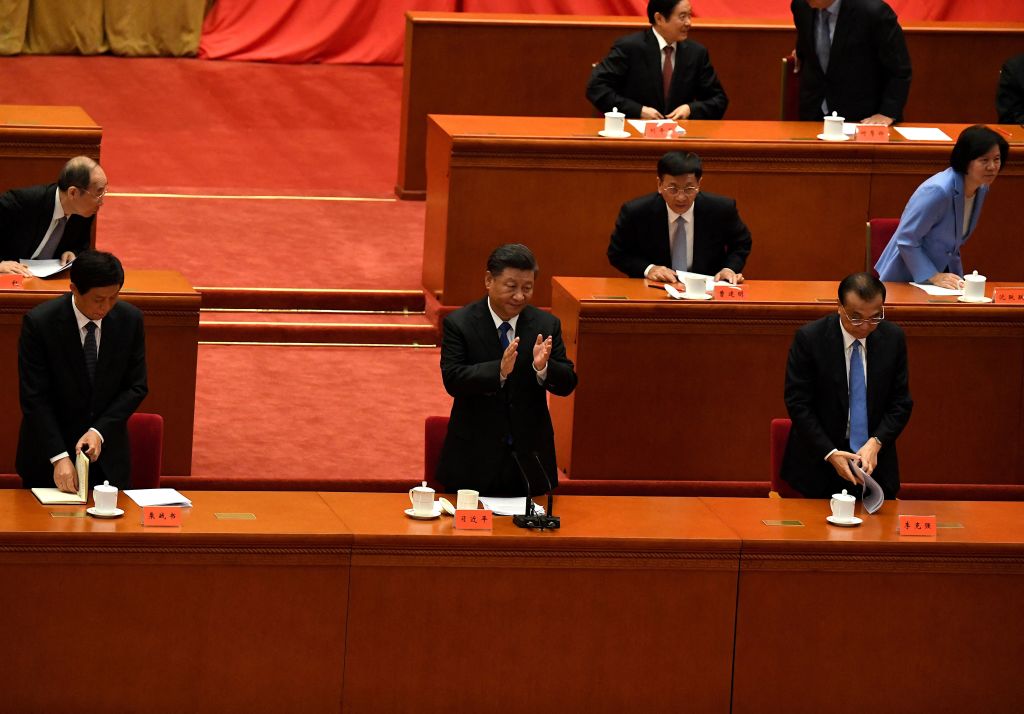
The Politburo of the Communist Party of China (CCP), China’s top policymaking body, has revealed its economic plans for 2022. Unlike the previous year, the focus appears to be on financial stability and prudence as the country faces slowing growth. Technological self-sufficiency and innovation still remain a core priority as pressure from Washington continues.
On Monday the 25-member Politburo, chaired by President Xi Jinping, met to discuss economic development and anti-corruption plans for 2022. The meeting notes were published by state-run news outlet Xinhua and highlighted that “actions should be taken to safeguard macroeconomic stability, keep major economic indicators within an appropriate range and maintain social stability to prepare for the Party’s 20th National Congress.”
The CCP further emphasised that economic plans for 2022 should prioritise stability and prudence, noting that China will “continue to adopt proactive fiscal policies and prudent monetary policies.”
This is a notable shift away from last year’s meeting, which focused on “strengthening anti-monopoly rules and preventing the disorderly expansion of capital,” triggering a year of regulatory curbs aimed at reining in the power of big tech companies.
In 2021, a succession of aggressive moves by the Chinese state adversely affected countless industries, including ecommerce, gaming, online tutoring, cryptocurrency trading and others. New data security laws have also hammered Chinese tech stocks, with indices in Hong Kong, Shanghai and Shenzhen slumping.
Moreover, last year’s meeting pointed out the necessity “to systematically evaluate and summarise the building of a moderately prosperous society in an all-round way, consolidating and expanding poverty alleviation in connection with rural revitalisation.”
How well do you really know your competitors?
Access the most comprehensive Company Profiles on the market, powered by GlobalData. Save hours of research. Gain competitive edge.

Thank you!
Your download email will arrive shortly
Not ready to buy yet? Download a free sample
We are confident about the unique quality of our Company Profiles. However, we want you to make the most beneficial decision for your business, so we offer a free sample that you can download by submitting the below form
By GlobalDataAs a result, the notion of “common prosperity” became a popular topic among Chinese multinationals. Notably, companies such as Alibaba and Tencent pledged considerable sums of money to support fair economic development.
In contrast, this year’s meeting notes “urged efforts to ensure the bottom line of people’s livelihoods, fully implement the employment-first policy and promote the new birth policy.” The term “common prosperity” was not directly mentioned.
“[The meeting] offers no wisdom on how Xi is going to redistribute wealth and income under ‘common prosperity’ to address the growing ‘lie flat’ phenomenon among the post-1990 generation protesting against the grind and cost of living in an economy experiencing a marked slowdown in growth and exposing acute inequalities,” points out Michael Orme, senior analyst at GlobalData and China specialist.
This will be a primary challenge for Xi in the upcoming year. In addition, the CCP will need to “’engineer from above’ the development of upstream hard tech to surpass the US in foundational technologies by 2035,” Orme adds. This is one constant that has not changed since last year.
The CCP underlined “continued efforts to make breakthroughs in core technology bottlenecks and enhance the country’s strategic science and technology strength.” It also emphasised the need for China to bolster its competitiveness in the manufacturing industry and to boost supply chain resilience.
These comments underline President Xi’s previous remarks that China should accelerate efforts to become self-reliant regarding science and technology as a matter of “national development”.
Trade tensions with the US have restricted numerous Chinese companies – notably in the semiconductor sector – from accessing key technology.
The Politburo’s meeting coincides with plans laid out by the central bank. On Monday, President Xi Jinping rubber-stamped a proposal from the People’s Bank of China (PBOC) for more targeted lending to businesses. The proposal also outlined support for the housing market.
The PBOC said it would cut the reserves most banks must hold by 0.5 percentage points, which would release another 1.2tn yuan (US$188bn) into the economy in hopes of boosting slowing economic growth.
The rapid economic boom that China enjoyed over the past two decades now appears under threat as GDP growth slows down. In 2020, the Chinese economy grew by 1.83%, as compared to a growth of 6.11% in 2019, though the impact of Covid-19 must be taken into account.
Nevertheless, growth rates in 2021 have been far more modest than several years ago. In the third quarter, China’s economy grew by 4.9%, lower than analysts’ expectations.
GlobalData, the data analytics company, forecasts China’s real GDP to grow at an average annual rate of 7% between 2021 and 2023.
New target: real estate
This year’s meeting also specifically mentioned the need to “advance the construction of affordable housing, support the commercial housing market to better cater to the reasonable demand of home buyers and boost the healthy development and the virtuous cycle of real estate sector.”
The emphasis comes against the backdrop of several Chinese real estate developers – notably Evergrande – finding themselves on the brink of bankruptcy. The meeting notes indicated that stabilising the country’s real estate market may become a core focus in the upcoming year.
Despite the positive support from the Politburo, the country’s second-largest and the most-indebted property developer, Evergrande, is still inching closer to a default.
Another Chinese property developer, Kaisa – the second-biggest borrower on international markets in China’s real estate sector – is also facing financial troubles. On Wednesday, it suspended trading in its shares following a missed deadline to repay investors after a US$400m bond matured.





